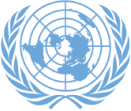Statement by His Excellency Mr. Rudolph Michael Ten-Pow, Ambassador, Permanent Representative of the Co-operative Republic of Guyana, on behalf of the Caribbean Community (CARICOM) on Agenda Item 124: “question of equitable representation on and increase in the membership of the Security Council and other matters related to the Council”
Madame President,
I have the honour to deliver this statement on behalf of the fourteen (14) Member States of the Caribbean Community (CARICOM) as our contribution to today’s debate on the question of Security Council reform.
At the outset, CARICOM takes this opportunity to thank the distinguished Permanent Representatives of Georgia and the United Arab Emirates, Their Excellencies Ambassadors Kaha Imnadze and Lana Nusseibeh, for their excellent stewardship of the IGN during the seventy-second session. We are glad to have Ambassador Nusseibeh back as a co-facilitator. This will ensure a degree of continuity in the IGN. We welcome aboard Ambassador Christian Brown of Luxembourg. CARICOM will remain engaged in the IGN under the stewardship of the new co-facilitators.
Madame President,
The General Assembly meets annually to debate the critical question of reform of the Security Council and this debate is followed by engagements within the IGN. Member States have spent many many hours over the past several years discussing this important question and offering a myriad of proposals on how we might actually achieve a reformed Council. Given this heavy investment of time and other resources, it is deeply regrettable that more progress has not been made on this longstanding and important issue of Security Council reform. Progress is in the hands of the Member States and CARICOM firmly believes that if each of us summons the political will to go further than we have heretofore gone, progress could be achieved.
Madame President,
Every session that concludes without achieving any of the goals envisaged in the reform process is a stark reminder that the imbalances that exist on the Council will continue to be perpetuated by maintaining the status quo. These imbalances include the exclusion of entire regions, specifically Africa and my own Latin America and the Caribbean, from the permanent category of membership. The perpetuation of these imbalances has effectively meant that nearly fifty percent of the current membership of the United Nations remains excluded from permanent membership of one of its principal organs. The perpetuation of this imbalance has also meant that the composition of the Security Council has not kept up with the evolution of the membership of the Organization and therefore raises concerns about its representativeness. In fact, when the General Assembly established the Open-Ended Working Group in 1993 to consider matters related to the reform of the Security Council, its decision was based on the recognition of the need to “review the membership of the Council in view of the substantial increase in the membership of the United Nations, especially of developing countries, as well as the changes in international relations.”
The perpetuation of the status quo has also meant that the work of the Security Council continues to miss the benefit of important perspectives and experiences. Madame President, as you are aware, CARICOM advocates for a guaranteed presence of Small Island Developing States (SIDS) on the Council since we believe that, given its unique experiences, this group of Member States has important contributions to make to the maintenance of international peace and security. With the continued lack of progress on reform, however, CARICOM’s advocacy has not yet achieved the desired end.
Madame President,
In your address to the opening of the 73rd session of the General Assembly on 18 September 2018, you rightly observed that “the Security Council must adapt to new political realities.” CARICOM supports this view and notes that the United Nations continues to affirm the value of multilateralism and of equitable involvement in decision-making. On this basis, the Security Council must be restructured in a way that provides opportunity for equitable involvement in the questions of peace and security of which the Council is seized.
Madame President,
As we approach the IGN during this session, CARICOM takes this opportunity to share its expectations going forward. First, we hope to have continuity and to build on what has already been done. We believe that the Revised Elements of Commonality and Issues for Further Consideration paper should be one of the principal bases for our work during this session. While the paper captures many of the perspectives expressed on the five pillars of negotiation, we believe that there is still scope to further shape its substance. CARICOM underscores the need for responsiveness to the expressed wishes of the membership and, in the spirit of transparency, to avoid exclusion of ideas in any revisions of the paper.
Second, CARICOM emphasizes the importance of respecting the voice and views of every Member State. Reform of the Security Council is a particularly sensitive issue and there are many divergent positions on the process and substance of the reform. CARICOM believes however, that as sovereign states, every one of us can contribute meaningfully to the dialogue on reform of the Security Council and maximum participation should be encouraged as a means of enhancing the legitimacy of the process.
Third and finally, CARICOM hopes that the meetings this year can achieve some concrete and actionable outcomes. We have spent many years elaborating our positions and CARICOM hopes that we can find a way to go beyond this in the upcoming months.
In conclusion Madame President,
I thank you for organizing this important debate and wish to assure you of CARICOM’s full commitment to an early and urgent reform of the Security Council.


